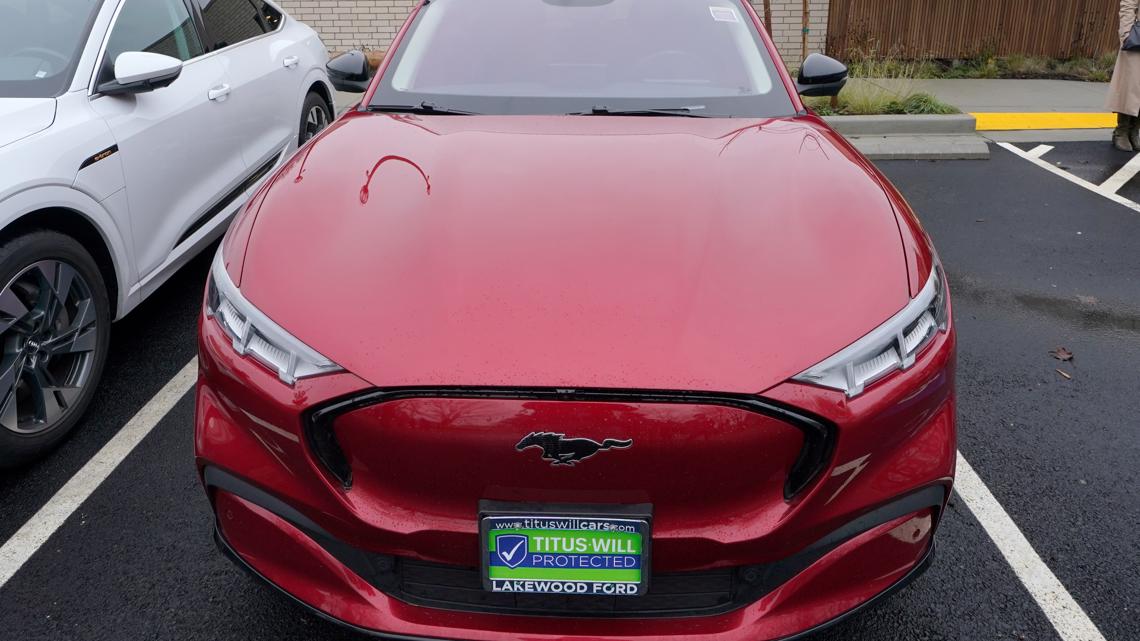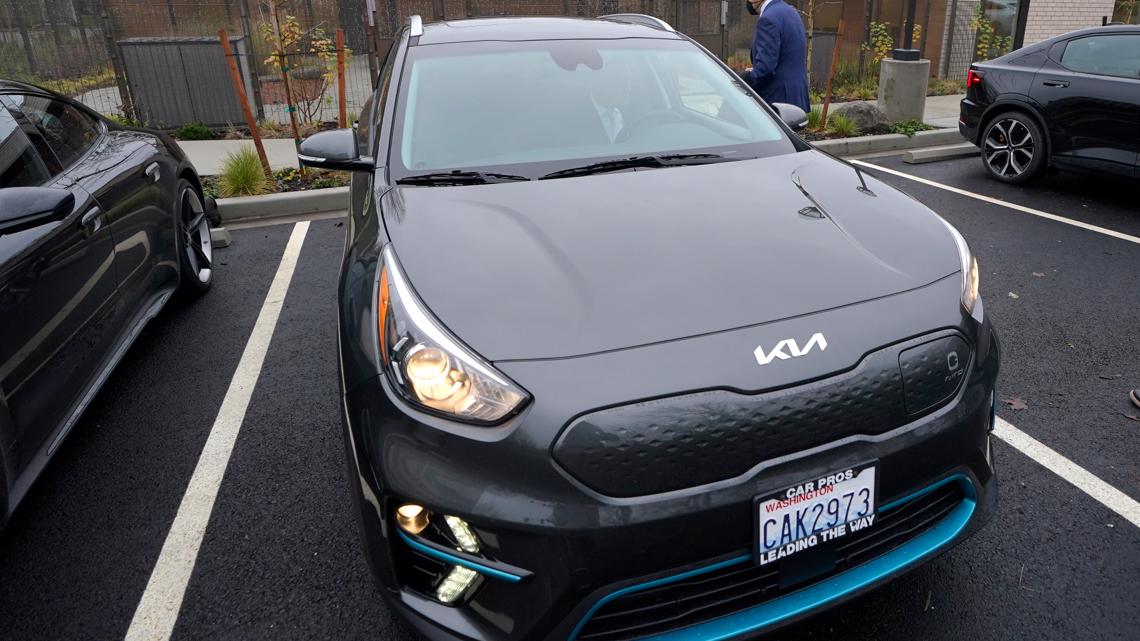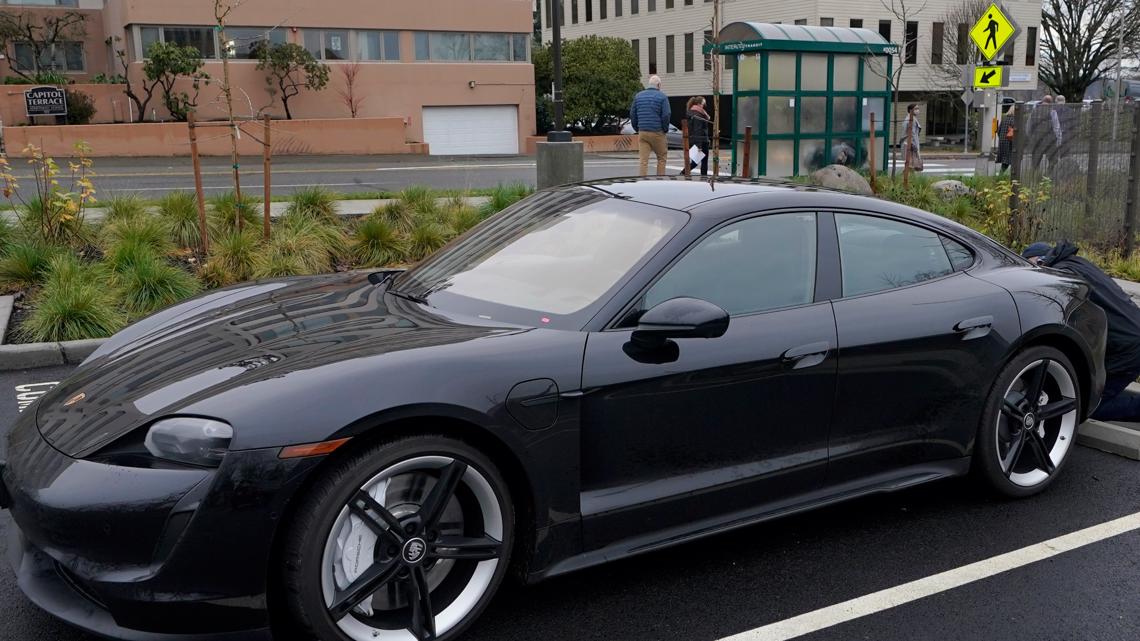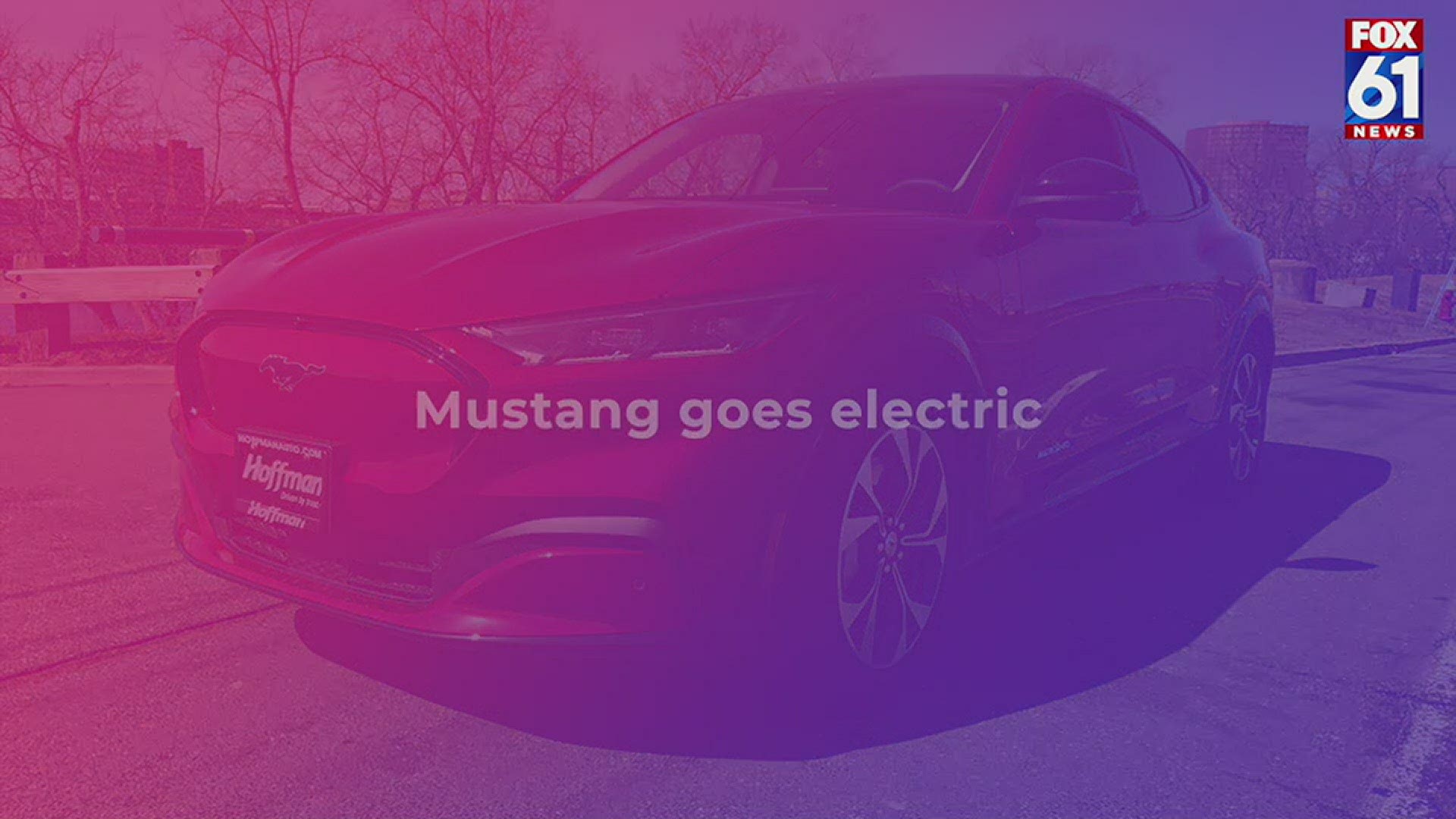HARTFORD, Conn. — Editors note: The video above is from April 2021, around the time the Ford Mustang Mach E was introduced.
So, you're thinking about switching over to a battery-powered electric vehicle (EV). You should know, it's not like just replacing the car you have now.
Taking some extra time to prepare before you purchase will make sure you won't be surprised along the way.
One electric vehicle owner we talked to, James Mastromarino of Seattle, said the effort is worth it. Mastromarino bought a Mustang Mach E this year. He had previously owned a Ford CMax hybrid, which gave him 20 miles on a charge.
"That's where I started to get over a lot of the range anxiety was knowing, 'Wow, 20 miles gives me everything local that I need going grocery shopping doesn't get me all the way to work, but it gets me a good way'," he said.


What to know about the cost
Battery-powered electric vehicles cost more than vehicles equipped with an internal combustion engine.
A Tesla Model 3 is roughly the same size as a Honda Accord or Toyota Camry. Those cars start at around $26,000. The Tesla base model will run around $41,000. A Mini Cooper EV, which is much smaller than the other cars, starts around $29,000, while a standard Mini Cooper costs around $20,000. Ford's forthcoming base model F-150 EV is promised to be around $40,000 - $12,000 more than the base model with an internal combustion engine.
The longer-range or faster models cost even more.
While you'll save money on gas and repairs over time with an EV, you will likely pay more for insurance.


How practical is an electric vehicle for you?
Before buying, you must decide what the primary use of the vehicle will be. Is it just for commuting? Maybe running the kids around town? Will you need to carry things?
Like any car purchase, decide on the features you need, and which vehicles will meet those requirements.
Can you do what you want to do in a vehicle that you can afford?
Will the vehicle's range get you where you need to go?
You should track how far you drive on an average by day, week, and month. Lower range EVs are less expensive, so you may find that you can get by with less range.
A Mini Cooper EV has a range of about 110 miles. Factor in the loss in the range from hot or cold weather, traffic, how you drive, etc., you would need to consider a real-world adjustment.
InsideEVs.com found that real-world range varied from 36.9% higher on a Porsche Taycan 4S to 12.7% lower for the Chevrolet Bolt. With about three-fourths of commuters driving themselves, the average commuter travels approximately 15 miles one way, according to the U.S. Department of Transportation.
"When I first started looking for an electric car, it really came down to what range I was looking for. And I really enjoyed that there is more diversity in the market now," Mastromarino said.
Where will you be driving?
If you plan to take a road trip, will you have a charger along your route or at your destination?
Thankfully, apps that show the location of charging stations are available. In addition, some vehicles will include the locations in their mapping software. Google Maps and Apple Maps have information on charging stations.
"There's a vineyard out here that offers free electric charging, there's special parking, often at our airport out here SeaTac, my office provides charging as well as special parking," Mastromarino said.
Do you know where you can charge?
Do you live in a house, condo, or apartment? Do you have a garage? That will factor in how easy or difficult it will be to charge your car at home.
Charging the vehicle will take longer than filling the gas tank. Standard 110 volt or Level 1 chargers take the longest, sometimes taking more than a day to fully charge a depleted battery. The most common way to recharge your EV at home is a Level 2 charger, plugging it into a 220-volt charger, the same type as a clothes dryer.
Meanwhile, DC fast chargers, or DCFCs, are considered Level 3 chargers. They use direct current at 480 volts instead of the others which use alternating current. You may have seen these in the form of Tesla Superchargers at shopping centers or highway rest areas. They will only charge Teslas.
Other charging companies have Level 3 charging, but they may not be compatible with every electric vehicle.
So you should consider if you have a place to install a charger where your car will be at night? Do you need permission to install it? Will it be secure?
The cost to install a 220-volt line can run as high as $500 and depends on location and other factors. Some utility companies have programs to reduce the cost of home charger installation.
"We had installed what is known as a level two charger, which is more or less a dryer outlet. And from there, you can plugin and then that charges overnight between eight to 10 hours. And generally, the cost to charge is lower overnight as well," Mastromarino said.
"This summer we took a road trip about 1,000 miles back and forth. So 2,000 In total, using multiple different networks, including Electrify America. And that I would say was my biggest surprise in owning an electric vehicle is how seamless that experience really ended up being."


Are there any incentives to help out?
The Federal government has provided an incentive of a $7,500 tax credit to buy an electric vehicle. However, there's a catch, once the manufacturer sells 200,000 EVs and/or plug-in hybrids, the incentive no longer applies. That means if you buy a car from GM or Tesla, you won't get the full amount.
Some states, like Connecticut, provide more incentives, but some programs have an end date or are available until the money in the program runs out. Eversource, Mutual Credit Union, and Norwich Public Utilities participate in state incentive programs.
Some power companies offer incentives for charging station installation and some charge lower rates for charging stations.
"I know that at our home, our electric bill monthly went up maybe $5. So it was really a minimal hit to our electric bill. Especially when you think that in some places that's how much it cost per gallon to put gas in your car, I would very much recommend it," Mastromarino said. "I'm all about the environment, too. My background is in meteorology and environmental science. And knowing that it's a small step that I can take, and especially with affordability changing for electric vehicles, it's an impact that I want to be a part of it and I hope others do as well.
At the end of the day, the purchase of a battery electric vehicle has some significant differences from that of internal combustion engine vehicles. Some time and effort spent doing your research will make that road smoother.
Doug Stewart is a digital content producer at FOX61 News. He can be reached at dstewart@fox61.com.
---
Have a story idea or something on your mind you want to share? We want to hear from you! Email us at newsteam@fox61.com
HERE ARE MORE WAYS TO GET FOX61 NEWS
Download the FOX61 News APP
iTunes: Click here to download
Google Play: Click here to download
Stream Live on ROKU: Add the channel from the ROKU store or by searching FOX61.
Steam Live on FIRE TV: Search ‘FOX61’ and click ‘Get’ to download.

